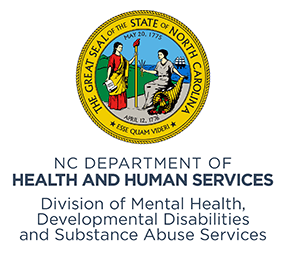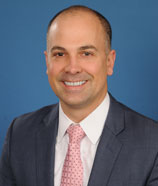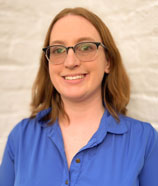Adapted Trauma-Informed Services Series Fall 2022
The Modular Approach to Therapy for Children (MATCH)-Adaptations for Youth with Intellectual Disabilities
Will be held live on 8/10/2022 from 10 am – 12:00 pm
Speaker: Dan Cheron
Description
The Modular Approach to Therapy for Children with Anxiety, Depression, Trauma, or Conduct Problems (MATCH), is an evidence-based counseling program for children and teenagers, ages 6-17, and their families. Unlike most specific counseling programs, which focus on a single problem (e.g., anxiety only), MATCH is designed for multiple problems related to anxiety, depression, post-traumatic stress, and disruptive conduct, including conduct problems associated with ADHD. The MATCH program can give children and families a specific set of scientifically proven tools to help manage these problems that come up at home, at school, or with friends. Therapists who use MATCH have specialized strategies to customize each treatment to each family. In this training, attendees will receive introductory information about the MATCH program. Topics will include an overview of core concepts associated with the individual treatment protocols in MATCH and a summary of the empirical evidence supporting MATCH. Strengths and limitations of the program will be discussed. Specific attention will be paid to describing how MATCH can be utilized to address traumatic stress problems as well as adaptations that can be made to the MATCH program to support individuals who experience difficulties associated with Autism, Developmental Delays, or Intellectual Disabilities.
Learning Objectives
Participants will be able to:
- Describe the MATCH model and its core concepts.
- Summarize the empirical evidence that supports the use of MATCH for youth.
- Identify how MATCH can treat youth with a trauma related diagnosis.
- Explain how MATCH can be adapted to address the culture of Autism and/or Intellectual Disabilities.
Providing Applied Behavior Analysis in a Trauma Informed Environment
Will be held live on 11/9/2022 from 10 am – 12:00 pm
Speaker: Kristina Turner
Description
What is trauma informed care, and what does it mean to put trauma informed care (TIC) in to practice? In this training, you will briefly learn about the basics of trauma informed care, and then discuss what it means to put that into every day practice. Quality indicators of trauma informed practice will be discussed. Then, the trainer will discuss how trauma informed practice is applied in Applied Behavior Analysis (ABA) and when a referral for ABA services is appropriate for an individual you support, and how ABA can be applied in a trauma-informed setting.
Learning Objectives
Participants will be able to:
- Define the 4 Rs to a trauma-informed approach.
- Explain what putting the 4 Rs into practice looks like.
- Examine the components of the ABA treatment model.
- Describe how to adapt trauma informed principles into the practice of ABA.
Partnering with Families in Comprehensive, Trauma-Informed Assessments (CTIAs) for Youth with Dual IDD Diagnoses: A Strengths-Based and Flexible Approach
Will be held live on 2/8/2023 from 10 am – 12:00 pm
Speaker: Dr. Angela Tunno
Description
Participants attending this session will be provided with an overview of key components and the importance of Comprehensive, Trauma-Informed Assessments (CTIAS) that centers engagement and cultural humility. Topics will include ways to partner with families during the CTIA process and examples of strategies and tools that can be used to adapt the CTIA process for the individual youth and family. Interactive discussion and activities will allow space for participants to reflect on their assessment experiences and practice skills, such as engagement strategies and providing collaborative, person-centered, and strengths-based feedback with youth experiencing dual diagnoses.
Learning Objectives
Participants will be able to:
- Define components and the importance of Comprehensive, Trauma-Informed Assessments founded in engagement and cultural humility
- Describe how to engage, collaborate, and partner with families during the CTIA process
- Recognize opportunities and examples of strategies and tools that can be used to adapt the CTIA process for the individual youth and family through the collaborative therapeutic relationship
- Describe ways to provide feedback that is collaborative, person-centered, and strengths-based to meet the needs of the youth and family.
Problematic Sexual Behaviors and its Impact on Dually Diagnosed Youth
Will be held live on 5/10/2023 from 10 am – 12:00 pm
Speaker: Nicole Croteau-Johnson
Description
This presentation will provide an overview of the continuum of sexual behavior in children and adolescents; including normative vs. concerning vs. problematic with a focus on dually diagnosed youth. Participants will learn how to distinguish between typical sexual behavior and problematic sexual behavior (PSB) in children and adolescents, as well as understanding the risk factors for developing PSB. Participants will learn how to utilize and incorporate age appropriate language and responses to PSB in children and youth, and understand how to make appropriate safety planning and recommendations to support caregivers and families who have youth with PSB and Intellectual Disabilities, and/or Autism.
Learning Objectives - Participants will be able to:
- Identify the stages of childhood sexual development.
- Recognize how trauma can impact youth’s sexual development.
- Explain how to support caregivers who have youth with problematic sexual behaviors, Intellectual Disabilities, and/or Autism.
- Analyze the evidence-based practices used to address problematic sexual behaviors in youth with Intellectual Disabilities and/or Autism.



 Confirmation Notices and Certificates of Completion:
Confirmation Notices and Certificates of Completion: Dr. Dan Cheron is the Vice President of Programs, Implementation, and Training at Judge Baker Children’s Center. He is a licensed psychologist and is Board Certified in Clinical Child and Adolescent Psychology. He graduated from Boston College with a B.A. in Psychology. Dr. Cheron received his Ph.D. in Clinical Psychology from Boston University, where he worked extensively researching and treating anxious children and adolescents at the Center for Anxiety and Related Disorders (CARD). He completed his pre-doctoral internship at the May Institute in their community-based Behavioral Health Services Division.
Dr. Dan Cheron is the Vice President of Programs, Implementation, and Training at Judge Baker Children’s Center. He is a licensed psychologist and is Board Certified in Clinical Child and Adolescent Psychology. He graduated from Boston College with a B.A. in Psychology. Dr. Cheron received his Ph.D. in Clinical Psychology from Boston University, where he worked extensively researching and treating anxious children and adolescents at the Center for Anxiety and Related Disorders (CARD). He completed his pre-doctoral internship at the May Institute in their community-based Behavioral Health Services Division. Kristina Turner
Kristina Turner Angela M. Tunno, Ph.D., M.S. is an Assistant Professor and Licensed Clinical Psychologist at Duke University School of Medicine, the National Center for Child Traumatic Stress, and the Center for Child & Family Health. She received her doctorate in Clinical Child Psychology at the University of Kansas and her Master of Science in Applied Clinical Psychology at the University of South Carolina-Aiken. She also completed a fellowship at the Centers for Disease Control and Prevention (CDC), Division of Violence Prevention (DVP) where she helped develop and disseminate national prevention efforts focused on community violence and child maltreatment.
Angela M. Tunno, Ph.D., M.S. is an Assistant Professor and Licensed Clinical Psychologist at Duke University School of Medicine, the National Center for Child Traumatic Stress, and the Center for Child & Family Health. She received her doctorate in Clinical Child Psychology at the University of Kansas and her Master of Science in Applied Clinical Psychology at the University of South Carolina-Aiken. She also completed a fellowship at the Centers for Disease Control and Prevention (CDC), Division of Violence Prevention (DVP) where she helped develop and disseminate national prevention efforts focused on community violence and child maltreatment. Nikki Croteau-Johnson, MA, LPA, is a psychologist with over 20 years of clinical experience working with children, adolescents and their families in outpatient and forensic settings. She has specialty training in several evidence-based treatments, including, TF-CBT, PSB-CBT-S and PSB-CBT-A. She is currently the Clinical Director for the Problematic Sexual Behavior Program for Children and Adolescents at the North Carolina Child Treatment Program, where in addition to providing direct clinical services, she oversees the implementation of a statewide PSB program; developing a clinical workforce as well as clinical policy and procedures; stakeholder education and engagement, and other sustainability initiatives.
Nikki Croteau-Johnson, MA, LPA, is a psychologist with over 20 years of clinical experience working with children, adolescents and their families in outpatient and forensic settings. She has specialty training in several evidence-based treatments, including, TF-CBT, PSB-CBT-S and PSB-CBT-A. She is currently the Clinical Director for the Problematic Sexual Behavior Program for Children and Adolescents at the North Carolina Child Treatment Program, where in addition to providing direct clinical services, she oversees the implementation of a statewide PSB program; developing a clinical workforce as well as clinical policy and procedures; stakeholder education and engagement, and other sustainability initiatives.